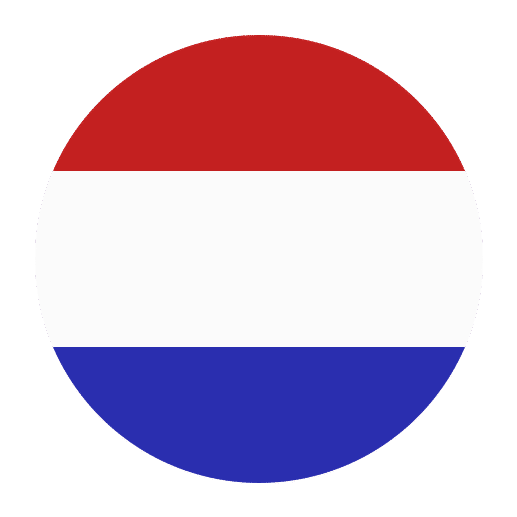DUTCH LEARNING WITH AI
At LinguaTeacher, we utilize the strength of Artificial Intelligence to provide a unique, personalized, and interactive experience in learning Dutch. Move away from the generic one-size-fits-all methods and embrace a customized approach that matches your individual learning style, pace, and objectives. Embark on a transformative journey to master Dutch with the cutting-edge support of AI.


Personalized Learning Experience
One of the primary advantages of using AI in language learning is the capability to enjoy a thoroughly personalized learning experience. At LinguaTeacher, our AI-driven platform evaluates your initial Dutch proficiency using advanced diagnostic tools. Based on this assessment, it develops a tailored learning path specifically for you. It considers your strengths, weaknesses, preferred learning speed, and even your interests. This means every lesson, exercise, and feedback loop is customized, keeping you engaged and motivated. The AI continuously tracks your progress, adjusting the curriculum to challenge you at the perfect level, helping you advance quicker and more efficiently than traditional language learning methods.
Constant Accessibility and Support
AI makes learning Dutch accessible 24/7, breaking the barriers of time and location. Whether you’re an early riser or a night owl, LinguaTeacher’s AI platform is always at your service, ready to help you learn new concepts or review past lessons. Additionally, AI-driven chatbots provide immediate feedback and support, which is essential for language learners who require frequent practice and timely corrections to develop fluency. This constant interaction guarantees regular practice, which is crucial for learning any language effectively. The system also creates exercises and simulations that mimic real-life conversations, aiding in building confidence and reducing the fear of making errors in actual scenarios.

Challenges of Learning Dutch
1. Why Learn Dutch
Learning Dutch can be a gratifying and valuable endeavor for various reasons. For starters, Dutch is spoken by over 23 million people as a first language primarily in the Netherlands and Belgium, with a considerable number of speakers in Suriname and the Dutch Caribbean. It serves as an essential gateway to cultures rich in history, art, and innovation. Furthermore, the Netherlands is known for its international business environment and progressive educational institutions, making Dutch proficiency a significant asset for anyone looking to engage in these fields. Language acquisition also enhances cognitive abilities like problem-solving and decision-making, providing personal growth benefits for those who decide dutifully to “Learn Dutch.”
2. Benefits of Learning Dutch Online
In today’s digital age, learning Dutch online offers unparalleled convenience and flexibility. Online learning platforms provide access to comprehensive resources that accommodate beginners to advanced learners. These platforms often feature interactive elements such as videos, quizzes, and games, which make learning Dutch engaging and effective. Additionally, learning Dutch online allows you to connect with native speakers and language learners worldwide, offering practical experience and cultural exchange from the comfort of your home. This method is cost-effective compared to traditional language classes and can be tailored to fit individual schedules and learning paces, exemplifying why so many choose this method to “Learn Dutch.”
3. Methods to Learn Dutch Effectively
To learn Dutch effectively, combining various learning strategies can be highly beneficial. First and foremost, immersion is key; try to incorporate Dutch into daily activities, like switching your phone or laptop settings to Dutch or following Dutch media outlets. Engaging with the language in context helps solidify understanding and improves retention. Additionally, structured courses that progressively build grammar, vocabulary, and conversational skills are crucial. Supplementing these with language apps that focus on spaced repetition can boost vocabulary acquisition. Regular practice with native speakers, whether through language exchange or conversation classes, is invaluable in achieving fluency and understanding colloquial expressions and cultural nuances inherent in learning Dutch.
FAQ
What is the best way to start learning Dutch?
Begin with basic vocabulary and essential phrases, and use online platforms or apps that offer introductory courses in Dutch.
How difficult is it to learn Dutch for an English speaker?
Are there any online resources you recommend for learning Dutch?
Duolingo, Babbel, and Rosetta Stone are highly recommended for their comprehensive language programs.
How long does it typically take to achieve proficiency in Dutch?
With regular study, learners can achieve conversational fluency in about 6-12 months.
Can learning Dutch help in professional growth?
Yes, Dutch is valuable for professional opportunities in the Netherlands and Belgium, known for international trade, finance, and education sectors.
Is it necessary to visit the Netherlands or Belgium to become fluent in Dutch?
While visiting can provide immersive language exposure, fluency can also be achieved through consistent online practice and interaction with native speakers.
Learn Dutch
Find out more about Dutch learning.
Dutch Theory
Find out more about Dutch grammar theory.
Dutch Exercises
Find out more about Dutch grammar practice and exercises.

